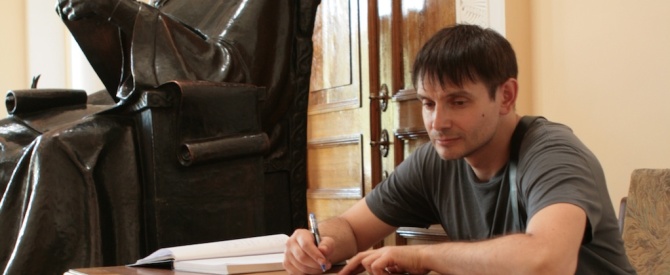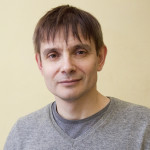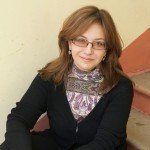A Magical Quest, or the Road to Knowledge

How would you describe Step Up’s work? What does it give to the students?
Every charity should have its myth, an over-arching idea. Our organisation’s idea is that, in a perfect world, every child should strive to achieve their goals – and that goal is their quest. All of us here have a common quest: a journey with some kind of magical end point. Not just any old journey, but one that demands regeneration, a commitment to overcoming difficulties, and entailing change. All for an enchanted goal.
Knowledge is not an end in itself; it is bewitching, and in searching for it people change in wonderful ways. The crucial thing is that on this path there are difficulties and discoveries: I mean both small and large discoveries, each one a small or large wonder. Some people learn to read. Reading isn’t a skill; it’s the discovery of a new world. The word ‘discovery’ is key… wonder and discovery – even if it’s a small wonder, it is still a wonder. And that’s both our intermediate and our final aim. Final in the sense of ultimate, as in a mathematical boundary towards which we aim, and which is in fact the transformation of a person. It might work out, it might not work out, but it is the aim: the overall task, the end goal. The goal and the difficulties you meet on your path must be overcome – although you don’t always overcome them. To use an allegory – there are antagonists: laziness, despair and narrow-mindedness, but there are also wonders and discoveries.
Reading is a system of good deeds. For our – sometimes egotistical and consumerist – students it’s a wonder when, instead of taking, they can give. We learn that. And on this path, maybe to knowledge, maybe to a profession, there are also wonders, like good deeds and giving. It’s not just being a consumer. It can be… not endlessly eating biscuits, but bringing biscuits. That’s a little wonder in itself. Those who understand appreciate how much of a wonder it is for our students not to take, but to give. Wanting to share? That’s a real discovery for them. Or it can be creative realisation – when no one had ever thought of them as a creative person before. Here there is space for this. They can do everything from football, to presenting at conferences, acting – lots of people who have never acted before act with us – learning poetry by heart, doing carpentry. And they do these things well: it’s not work-therapy or some kind of day labour, but something beautiful and original. This is our system of tests and discoveries: those transitional points like with the wizard in the land of Oz, or in John Bunyan’s Pilgrim’s Progress – they are present in such famous works of literature just like a Russian fairy tale. Just not in the stories where wishes come true – but rather in tales with real trials and challenges.
Everything about being an orphan is on an entirely different scale, has an entirely different yardstick. Everything commonplace and normal for people who come from an ordinary home is entirely unusual: the simplest things become wonders, and that is very important. If something is achieved, then it’s a wonder, and people are reborn. The experience of working with orphans is an experience of wonders in its own right.
In conversation with Olga Tikhomirova
Transcribed by Yulia Naumova.







